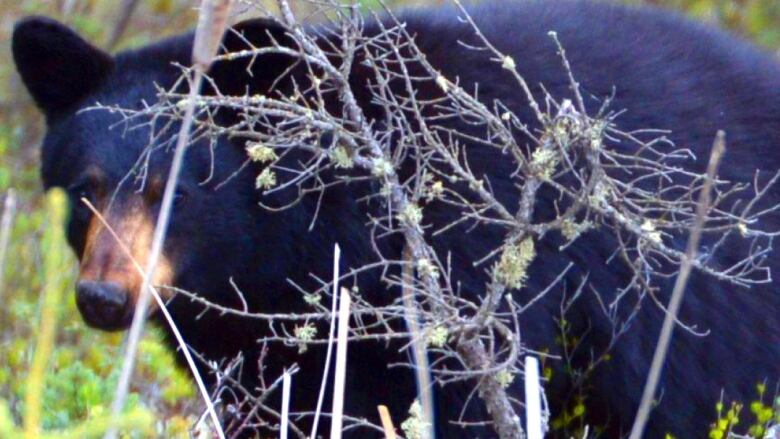Bear killings prompt Fur-Bearers to call for review of B.C. Conservation Officer Service
Conservation service says officers do their best to keep people and animals safe

A wildlife advocacy group is calling for changes to how B.C. handles bear encounters after conservation officers killed a sow and a cub in two separate incidents.
The Association for the Protection of Fur-Bearing Animals, or Fur-Bearers, say there's a growing sense of distrust regarding the province's conservation service.
"We've heard from several of our supporters that, should they have a problem, they will no longer contact the conservation service because of fear that they're just going to put the animal down," said the organization's executive director, Lesley Fox.
This week a sow was killed after she attacked a man jogging in a Prince George park; her two young cubs were tranquilized and sent to a wildlife refuge.

'Acting as any bear should'
Fox says she was surprised to hear the bear had been killed given that the sow hadn't heard the jogger coming and acted to protect her cubs.
"I would argue that bear was essentially acting as any bear should," she said. "So I would question the assessment of that bear as to whether or not she's a danger to people."
Neither the man nor his dog were wearing noise makers at the time of the attack.
And, earlier this month, a cub was killed after a family found it alone in the woods near Dawson Creek and tried to save it by feeding it and putting it in a dog kennel.
Tiana Jackson and her brother had called a conservation officer expecting him to take the cub away to wildlife refuge.
"I never ever thought he would kill it in front of me — they're supposed to conserve life," she said, adding she would never call a conservation officer again.
Fox says more oversight of the service is needed. She's calling for an inquiry into its policies around bear encounters.
'Difficult decision'
The Conservation Officer Service says it's never easy for members to put a bear down, and they do their best to keep people and animals safe.
"It's a very difficult decision to make and no officer wants to be put in the position to have to destroy an animal," said Chris Doyle, deputy chief of the service.
There have been 2,300 human-wildlife conflict reports since April 1, Doyle said, which is about the same number as last year. On average, the service gets more than 20,000 reports a season.
The Conservation Officer Service shared the decision-making matrix it uses to decide if a bear is a danger to the public.
With files from Andrew Kurjata.
(PDF KB)
(Text KB)CBC is not responsible for 3rd party content